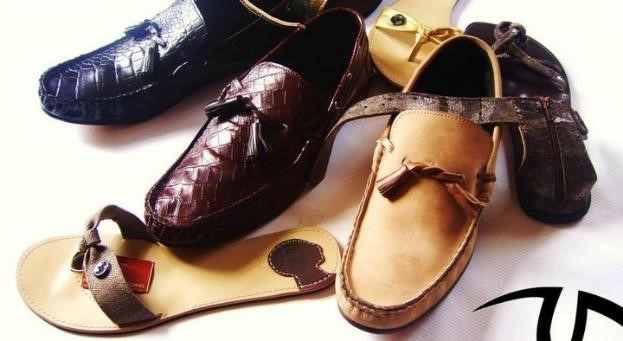Mrs Aronke Omame, Vice Chairman, Footwear and Accessories Manufacturing and Distribution Plc (FAMAD), has called on Nigerians to patronise locally-made footwears to grow the industry.
Omame made the call during a tour of the factory in Ojota, Lagos, on Saturday, tagged “Factory Day”.
Omame noted that the high patronage of imported second-hand shoes was a challenge to the shoe making industry in Nigeria.
She said that though people preferred second-hand shoes because of the relatively low price, FAMAD would not compromise its price and quality.
“As far as I am concerned, we don’t have any competition in Nigeria because we have the best quality made-in-Nigeria shoes.
“However, one of our challenges is that Nigerians have the notion that if it’s not imported, it’s not good so they shun locally-made products.
“All we need to do is strengthen our marketing strategy to ensure more visibility to the Nigerian public,” she said.
The FAMAD boss also decried the lack of technical knowledge prevalent within the labour force in the industry.
This, she said, was due to the absence of trade schools specifically designed for shoe making and other crafts.
“This is why FAMAD is always training and retraining our staff. We are also looking to train more people in the industry because the industry must not be allowed to die,” she said.
Omame further said that the objective of the event was to connect school proprietors and parents with the brand, to ensure patronage and sustained partnerships.
She gave the assurance that FAMAD would do more to regain the confidence of existing customers and attract new ones.
“We are aggressively looking at partnerships with schools. We hope to also direct our attention to parents/teachers’ associations and social media,” she said.
Earlier, Mrs Olubukola Adewuyi, Chief Executive Officer, Supreme Education Foundation Schools, who spoke on ”Education for Nigeria by Nigerians”, attributed low patronage of locally-made products to the erosion of the Nigerian culture.
Adewuyi, represented by Mrs Adebukola Dawodu, a staff of the foundation, said that Nigerians had adopted foreign trends and practices to the detriment of the their culture.
“We have moved on from accepting our culture and made-in-Nigeria goods and we have adopted foreign trends.
“All the trendy designer wears we import are not bad but we need to look inward at things that suit our cultural needs and societal goal.
“Our curriculum also needs to be saturated with a lot of content that will deliberately transmit all our cultural values.
“We need to teach our children that the standard is not Gucci, Next and other foreign designers. It can be a quality made-in-Nigeria product like FAMAD,” she said.
The educationist said that Nigerians need to showcase their culture, styles and what they stood for, so that when citizens go out, people would appreciate our culture for it not to go into extinction.
She called on policy makers, educators, school owners and parents to ensure culture is infused with education and all facets of life.
Also, Mr Adesola Benson, Production Manager, FAMAD, said the company would continue to deliver quality products in line with fashion trends.
“Things have improved in terms of leather manufacturing, the shape of shoes and designs.
“So, while we continue to maintain quality, we also want to make trendy shoes for all, not just school children,” he said.
Reports have it that school owners and parents were at the factory’s premises to get a glimpse of various shoes and new designs.
Mr Akinsumade Akintoye, Administrator of Crown Jewel Schools, Ketu, said that the tour was insightful as he was exposed to the manufacturing process and quality checks.
“I’ve seen so many students wear shoes and sandals that do not last for a school term and this is worrisome.
“From what I saw on display, and the video of the shoe making process that was shown, it is evident that FAMAD still has the best quality.
“So, we will ensure we partner with the brand and customise our shoes. We intend to have a continued relationship with them,” he added.

















Discussion about this post